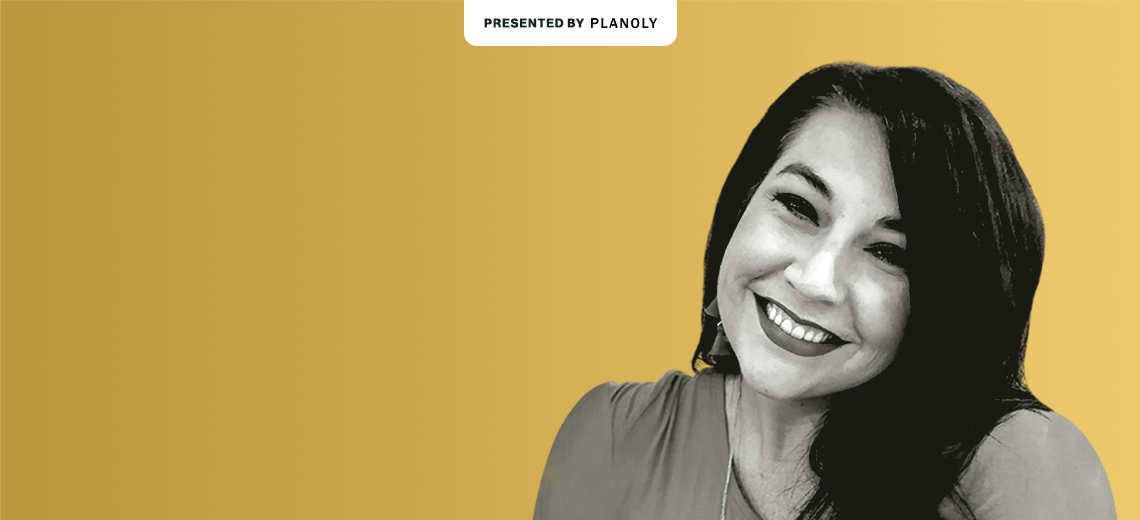This is an episode of the Glossy Beauty Podcast, which features candid conversations about how today’s trends are shaping the future of the beauty and wellness industries. More from the series →
Subscribe: Apple Podcasts | Stitcher | Google | Spotify
True Botanicals chief marketing officer Rebecca Boston‘s work in the fashion industry led her to beauty, and then, specifically, clean skin care. Boston was motivated to take the True Botanicals role after working at Rihanna’s Fenty Beauty because of the opportunity for a “branding refresh.”
“There wasn’t a clean beauty brand that made a woman feel herself, feel sensual,” said Boston on the latest Glossy Beauty Podcast. “We need to do a better job showing that a clean beauty brand can do that for you.”
But Boston’s passion for beauty started even before she worked within the marketing and social media sector for Fenty Beauty and Ole Henrickson. As a child, she traveled frequently because of her parents’ work with nonprofit organizations, said Boston. “I grew up being exposed to all different types of beauty,” she said. “I recognized the need in marketing and in advertising for more people to be able to see [the diversity of beauty for] themselves.”
True Botanicals’ skin-care campaign with Olivia Wilde, in which she posed nude, as well as its sexier Instagram feed are testaments to the brand’s portrayal of diverse beauty. It also shows its transition from “granola [and] crunchy” to “glowing” and “sensual.”
In the next few months, Boston plans to narrow in on launching new products and “filling gaps in our assortment.” She also wants to“[bring] on new folks who will help us reach new audiences and new age groups,” she said. “Once someone uses one of our products, they add more and more, and they want their entire skin-care routine to be True Botanicals.”
Boston spoke to Glossy about the recent Olivia Wilde campaign, her plan to get people to pay attention to the brand, and the current demands of a CMO role. The condensed excerpts from the conversation below have been lightly edited for clarity.
Ad position: web_incontent_pos1
On “repackaging” True Botanicals
“When I met the True Botanicals founder, Hillary Peterson, and learned about the brand, I was blown away. Hillary was driven to make it irresistible for everyone to use a safe and sustainable skin-care brand, by making products that are clinically proven to be more efficacious than a lot of the leading products. When I looked at the brand, I [thought] what it needed at that moment was help presenting itself in a way that would get people to pay attention. I [thought], ‘There’s potential here. This brand is incredible. It needs to be repackaged in a way that will get everyone to listen to what they have to say.’”
Developing an authentic brand-influencer connection
“Consumers are becoming savvier about ingredients, and they’re also becoming savvier about authenticity and [knowing] whether a brand stands for what it [says it] stands for. [Partnerships] between a brand and the digital influencers or celebrity influencers they partner with are only successful if those connections are truly authentic. That’s why all of our influencer and celebrity partnerships started with a celebrity approaching us first. We wait for the celebrities to slip into our DMs and tell us how much they love our Renew Pure Radiance Oil, and ask us to send them a package. We wait and see who loves us and also how they live their lives and what they stand for. Consumers can see through it if [there is no authenticity] nowadays.”
The importance of intuition
“Gut is still as important as ever. We did something incredible with our ‘Sustainability is Sexy’ campaign with Olivia Wilde, and there wasn’t any data that told us to do that. That marked [an] important moment in the clean and sustainable consumer movement. That came from gut. And then we followed it with great ads that are informed by performance marketing, and it all works together. I’ve heard people imply that CMOs now have to be all about analytics and they don’t need to be creative anymore. I don’t agree. Now, we have to find the unicorns who can do both. It’s challenging, but that is what the role demands today.”




